Comparing two countries is always an individual matter, because everyone has their own requirements for living comfort. But there are a number of general characteristics that most relocators take into account: climate, cost of real estate, level of salaries, approximate cost of living, attitude towards newcomers, etc. Based on these data, a general picture is created, which allows you to understand where it is better to move to a permanent place of residence.
Today we have two very similar countries that border each other, so they have a priori a lot of similarities – these are Spain and Portugal. They are united by a common history, which we will also talk about, but in our review-comparison we will make the main emphasis on the pros and cons of the two countries for an ordinary person. If you are planning to move, then read carefully and draw your own conclusions.
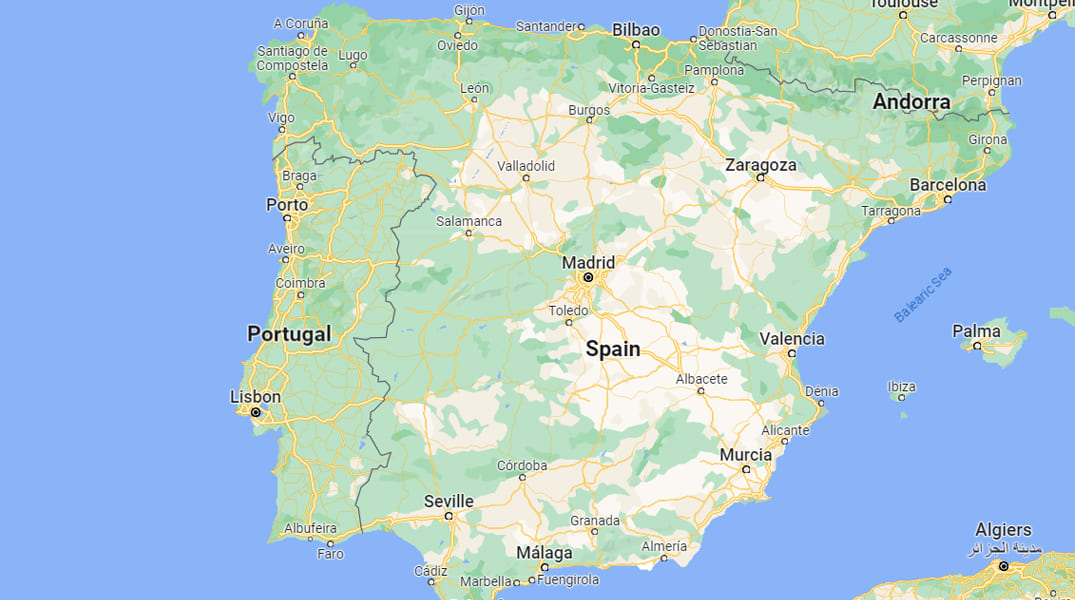
Contents
- A brief excursion into history
- Climate
- Infrastructure for recreation
- Food
- Cost of living
- Housing prices in Portugal and Spain
- Golden visa and taxes
- Attitude towards foreigners
- What did our comparison of Portugal and Spain show?
A brief excursion into history
In the Middle Ages, Portugal and Spain existed within the framework of a single state, which was called Iberia. On the Iberian Peninsula, there were constant wars for territory, the borders periodically shifted, i.e. there was a normal chaos for those years. Spain, which has always been known for its «colonial moods», constantly captured neighboring territories and, naturally, Portugal was a rather tempting piece. As a result of palace intrigues in 1580, this country even became part of Spain, losing its independence for 60 years. But on December 1, 1640, Portugal again became autonomous and this day is now considered a national holiday.

Let’s not go deeper into history, because we are interested in the subtext itself, because traditionally the relations between the conqueror and his former colonies are not the best. Today, the relationship between Spain and Portugal resembles «neighborly». A neighbor can flood us with water, make noise at night and bring suspicious guests. But when we have a holiday, who do we go to first? That’s right – to the neighbor, to ask for extra stools and cutlery. You can also drop by on a regular day, to sit in the kitchen, discuss life and scold the government. Therefore, between Portugal and Spain there are ordinary neighborly relations – not without mutual claims and dissatisfaction, but quite warm.
Therefore, if you choose one of these countries for living, you can not be afraid to travel to another – no one will break the windows of your car for «enemy» numbers. It remains to find out what is better – Portugal or Spain.
Climate
In terms of climate, both countries can give a head start to other European states. In Spain, there are about 280 sunny days a year, in Portugal – about 300. And it is worth coming here for those who tolerate high temperatures and warm, snowless winters well.

But, despite the close geographical location, the climate of the countries differs slightly from each other. In Spain, it is classic Mediterranean, characterized by a small amount of precipitation, dry air, as well as a fairly hot summer. On the Costa Blanca and other coastal areas, the temperature in winter is about +15 degrees, while it rarely drops below zero. In summer, there are about +35 degrees here, i.e. this is an ideal option for a beach holiday. In other parts of Spain, the climate can be different: in the central part it is very hot in summer and quite cold in winter.
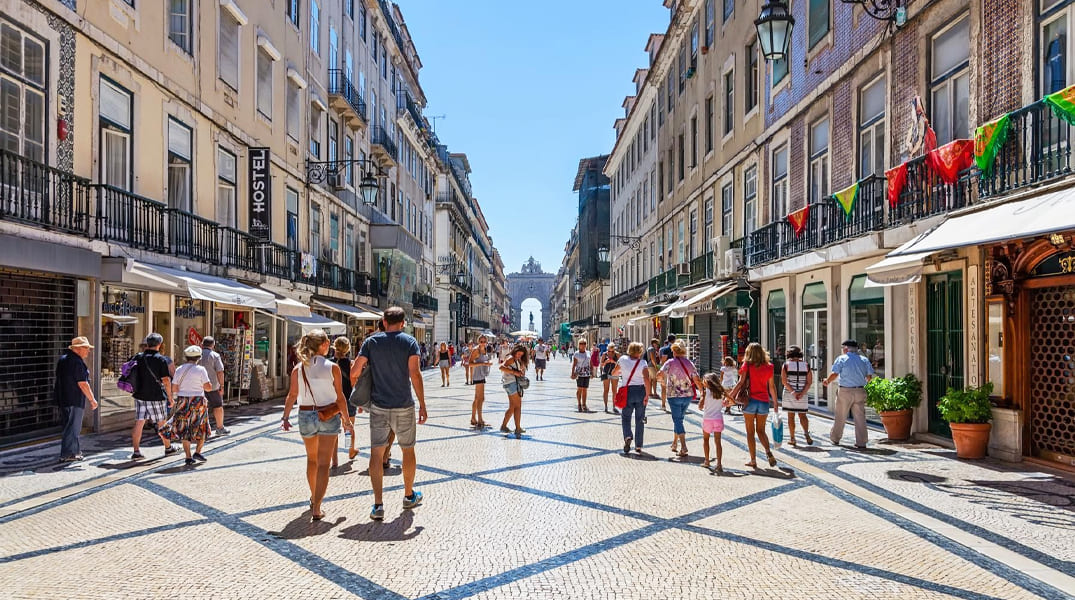
In Portugal, the climate is also favorable, but the air is humid – all because of the Atlantic Ocean. In the north, no one is surprised by snow, so Portugal can be considered something average: without exhausting heat and unpleasant cold. Lisbon, the capital of the country, is one of the warmest European cities, where the temperature in winter does not drop below +5 degrees.
Infrastructure for recreation
In Spain, there are a huge number of cultural attractions, which is due to the rich history of the country. Various museums and monuments are in every city, not to mention Madrid, Barcelona or Valencia, where almost every corner is a cultural heritage. The country has a large number of beaches and resorts on the Mediterranean and Atlantic coast, incredible cuisine, as well as a vibrant nightlife. Local holidays are celebrated with a bang, so almost every week you can get to a bright festival and whirl in a passionate dance with a local beauty.

Spain is a country that ranks second in the world in terms of the number of attractions that are included in the UNESCO heritage list. This fact alone says that you will definitely find where to go and what to see. Don’t like museums, but just want to bask in the sun? Spain in this case is perfect, because it is the leader in Europe in terms of the number of clean beaches.
Portugal cannot boast of all these regalia, but this country has everything necessary for a comfortable rest: the same beaches, museums, ancient castles, SPA-resorts, excellent restaurants, as well as a well-developed urban infrastructure with bicycle paths and hiking trails along mountains and oceans.
Food
The quality of products in Spain and Portugal is approximately at the same level. Everything is always fresh here, including seafood, which you can enjoy literally in every local restaurant. In both countries, the use of glyphosate is limited – a herbicide that is actively used in agriculture. This speaks of the fact that they pay special attention to the safety and environmental friendliness of food products here.

The cuisine of Spain is one of the main arguments that make you visit this country. They treat food here with special reverence, so this is a real paradise for gourmets. The variety of dishes is very large – it’s not only paella or gazpacho, but also other dishes from meat, seafood and fish. And most importantly – it’s the magnificent local wine, which is considered one of the best in Europe.

Portuguese cuisine is not talked about so often and it is difficult to name a traditional local dish right away. Sardines are very popular here, as well as various seafood. In particular, the price of octopuses and crabs is extremely affordable, which can be surprising for residents of other countries.
In general, in both countries the cuisine is Mediterranean, which is based on seafood, fresh vegetables and fruits. By the way, this is one of the reasons for the longevity of local residents.
Cost of living
One of the most important questions is where it is cheaper to live – in Spain or Portugal? Many residents of the USA, Germany, Great Britain and other more prosperous countries in terms of economic development prefer to move to Portugal after retirement. The matter here is not only in climate, but also affordable cost of living. About 1200-1400 euros per month are spent on one person, which is a very acceptable price tag by European standards. But it is important to understand that this implies a basic level, i.e. paying rent for an apartment, buying ordinary products, visiting restaurants no more than twice a month, etc. If you dine every day in cafes, love branded things and an active nightlife, then this amount can be safely multiplied by 3 or 4.
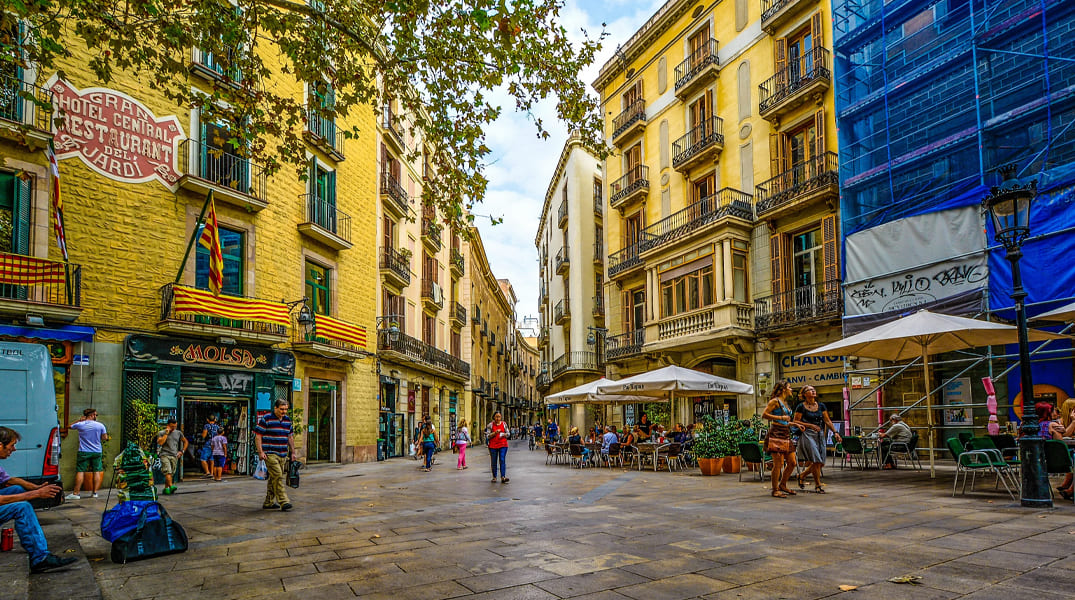
Life in Spain is a little more expensive, but it is still considered one of the most affordable in Europe. On average, the consumer check in Portugal is about 10-12% lower than in Spain, but the difference is not so critical.
Housing prices in Portugal and Spain
Spain is known for its diversity of real estate – from simple apartments and holiday homes to luxurious villas and country estates. The real estate market in Spain can offer different options in terms of price, location and type of property.
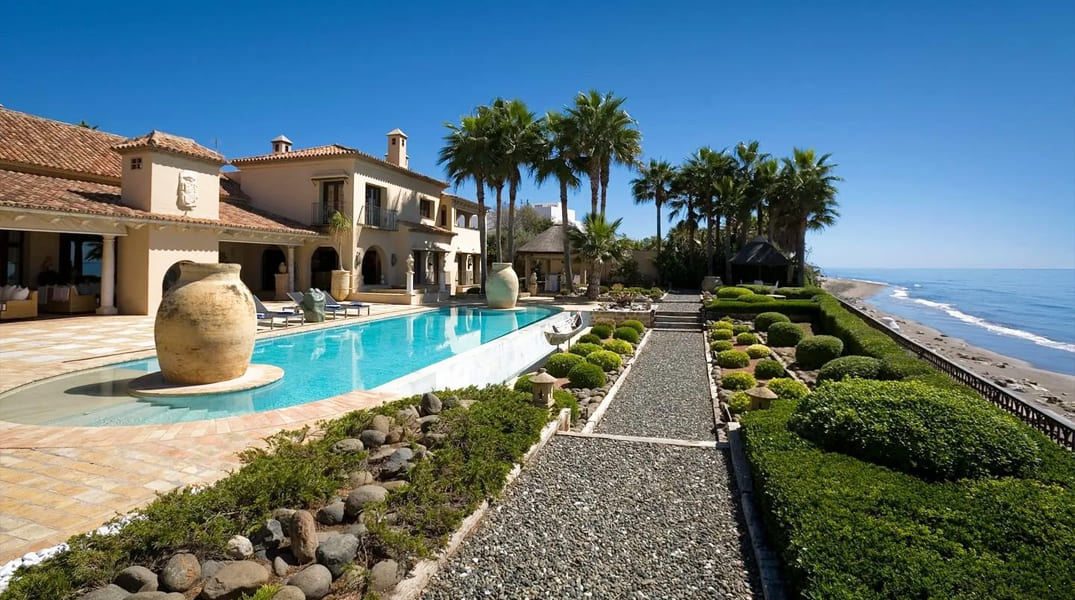
In general, the cost of real estate in Spain depends on such factors as location, area of the object, condition of the building and availability of infrastructure. For example, inexpensive apartments cost an average of about 100,000 euros, houses can be available from 150,000 euros, and prices for luxurious villas can start from 500,000 euros and reach several million.
Barcelona, Madrid and Marbella are some of the most expensive regions in Spain, where the cost of real estate is significantly higher than average. On the other hand, the provinces of Catalonia, Costa del Sol and Costa Blanca, as well as the Balearic and Canary Islands are more affordable regions for buying real estate.
Portugal, like Spain, offers a variety of real estate at an affordable price – from beautiful apartments in old cities like Lisbon and Porto to villas on the coast of Algarve.
The prices of real estate in Portugal also depend on a number of factors, including location, condition of the object and area. However, compared to Spain, real estate in Portugal can be a little cheaper. Apartments cost an average of about 150,000 euros, houses and villas start from 200,000 euros and can reach several million.
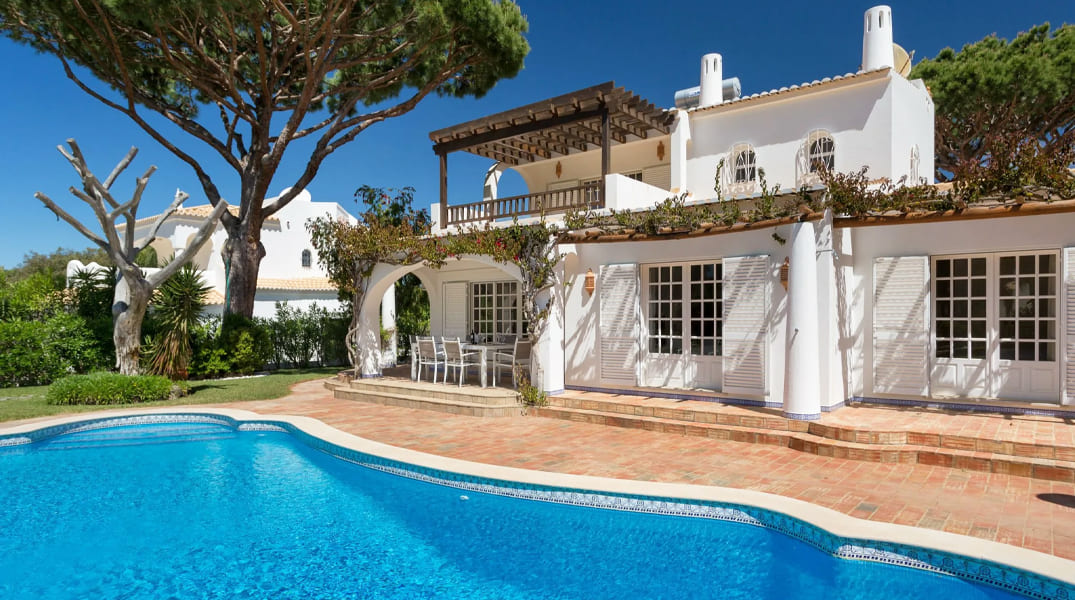
Lisbon and Cascais are the most expensive regions in Portugal, offering real estate with a high level of comfort. Algarve is also popular among foreign buyers, thanks to its beautiful beaches and lagoons. Real estate in other regions of Portugal can be affordable and offer great opportunities for living and recreation.
The final decision on where to buy real estate depends on your preferences, budget and time that you are willing to spend on searching. It is important to conduct a thorough research of the real estate market in both countries, as well as consult with experienced agents to make an informed choice.
Golden visa and taxes
To get a “golden visa” in Spain, which implies a residence permit, you need to buy real estate worth at least 500 000 euros. In Portugal, the requirements are the same, but there is a clarification: if you buy a house older than 30 years that requires restoration, then the minimum amount is 350 000 euros.

An important point is the taxes in these two countries. For example, in Spain personal income tax ranges from 19% to 47%, depending on the amount of income received. In Portugal – from 14.5 to 48%.
Features of taxation in Spain and Portugal:
- Residence – in Spain and Portugal an individual is considered a tax resident if he or she resides in the country for more than 183 days a year, or if his or her main place of residence is this country.
- Preferences for pensioners – both countries provide tax benefits and preferences for pensioners, including the possibility of exemption from tax on the sale of real estate.
- Income taxes – both countries provide a number of tax deductions and benefits for individuals, including deductions for children, education expenses and medical expenses.
Attitude towards foreigners
Spain and Portugal are two southern European countries that have been popular tourist destinations and places for international immigration for many years.
Cities like Madrid, Barcelona, Lisbon and Porto have become international hubs attracting foreign investment, startups and tourists from different countries. Spain and Portugal actively attract foreign students, providing them with the opportunity to get quality education in universities and language schools.

The attitude towards foreigners in Spain and Portugal, in general, is friendly and hospitable. Many locals are happy to anyone who wants to get acquainted with their culture and language. In these countries, various intercultural festivals and events are held, where foreigners can get acquainted with the traditions and customs of the local population.
However, as in any country, the attitude towards foreigners may differ among different social groups and regions. Some locals may show prejudice or distrust towards foreigners because of stereotypes or biases. But such cases are rather an exception than a rule.
What did our comparison of Portugal and Spain show?
Spain and Portugal are two attractive countries for relocation, each of which has its own advantages. In Portugal, taxes and housing prices are lower, but at the same time in Spain there is a larger choice of real estate. Health care is better in Spain – it is considered one of the most developed in Europe. The climate and local cuisine are pleasing in both cases, so there are no significant differences here.
The specialists of the real estate agency “M2 Real Estate” recommend weighing all the “pros” and “cons” when choosing a country for relocation. Everyone has their own requirements for comfort, so highlight for yourself the moments that are vital for you. With all other questions related to finding suitable real estate and arranging all the papers, our company will help you, which has extensive experience in selecting real estate in Spain for our clients. All ads on our website are carefully checked by a team of moderators, brokers and lawyers.


